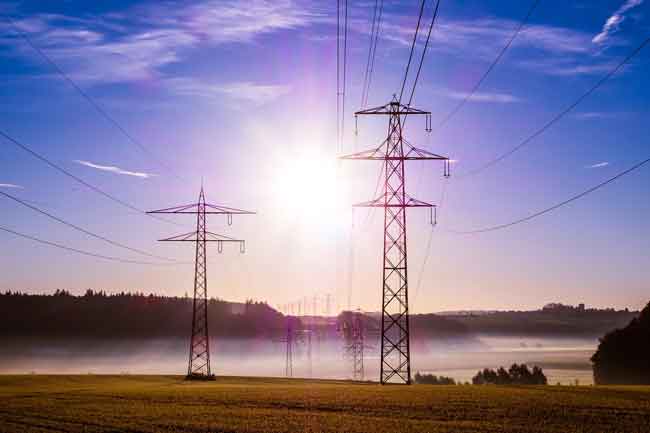Empty Florida homes slice Progress' income
The Raleigh electric utility reported that earnings dipped 3.5 percent in the first quarter of this year as the once-booming growth in Florida's population has slowed to a trickle. Tens of thousands of unoccupied homes in Florida have swelled a backlog of unsold or foreclosed properties in that state's housing market.
Florida constitutes Progress Energy's biggest service area, accounting for more than half the company's 3.1 million electricity customers in Florida and the Carolinas.
Florida is one of the regions hardest hit by the national housing crisis. But that state's economic slowdown is not slowing Progress' plans to add two nuclear reactors in that state at an estimated cost of $17 billion.
Progress officials have put in place plans to control costs and recoup the lost revenue. The company has also increased sales of surplus power to municipal electric utilities in Florida. Progress officials expect the Florida economy to recover, and they reaffirmed the company's financial guidance for the year at $3.05 per share, give or take 10 cents.
"This is permanent for the next year or so until we see the housing inventory reduced," said Peter Scott, Progress Energy's chief financial officer. "This is just a temporary slowdown." By law, the economic fortunes in Florida cannot affect rates for Progress customers in the Carolinas.
The company's Florida utility operates independently of the Progress utility in the Carolinas. Still, the importance of Progress' financial health to the Triangle can't be underestimated.
As the region's only home-grown Fortune 500 company, Progress employs 10,600 people, including 5,800 in North Carolina. Thousands of employees, retirees and other investors count on Progress stock for a steady dividend and long-term investment. To strengthen its financial profile, Progress last year completed a multi-year sell-off of noncore businesses so the company could focus on retail sales of electricity in its three states.
The first quarter of 2008 was the company's first as a streamlined utility, without side businesses such as coal mines, river barge terminals, railroads and telecommunications subsidiaries. CP&L's acquisition Many of the noncore businesses were acquired in 2000 when the utility, then known as Carolina Power & Light, bought Florida Progress for $5.3 billion.
Now the company is entering a phase of building multibillion-dollar power plants to meet growing energy demand. Meanwhile, it is trying to control costs. "Utility companies that have delays or cost overruns or regulatory challenges are going to suffer," said Paul Franzen, a utility analyst at Edward Jones in St. Louis.
For the first three months of the year, Progress' ongoing earnings fell to $149 million, or 57 cents per share, compared with $148 million, or 59 cents per share, for the same period in 2007. Ongoing earnings reflect utility operations only, and exclude non-core financial factors.
First-quarter sales dipped less than a half percent to just under $2.1 billion. A major contributor to the quarterly earnings decline was the dramatic slowdown in new customers in Florida. In the Carolinas, the company added 26,000 customers in the past year, a 2 percent growth rate that has been consistent over the past decade.
Florida had been growing at a faster pace than the Carolinas, but in the past year, Progress has added only 7,000 new customers in the Sunshine State, about one-fourth of population growth seen previously.
"We did face some external challenges this year," CEO Bill Johnson told Wall Street analysts in a recent telephone conference call. Nobody's home What's more, a growing number of the company's Florida "customers" are empty homes, connected to a utility meter but sitting idle.
In past years, Progress has tracked about 80,000 low-energy-use homes - typically residences occupied only part of the year - in its Florida service area.
But with the downturn in the housing market, the number of such homes has increased by about 30,000, company records show. Most aren't likely second homes for wealthy snowbirds but rather unoccupied homes waiting for buyers in a glutted, overpriced market.
In the Carolinas, where the housing market remains comparatively stable, the number of vacant homes has barely budged, Scott said. The economic situation in Florida was exacerbated by mild winter temperatures that further reduced electricity demand during the first three months of the year, the company said. As a result, residential electricity sales were down 3.6 percent in Florida, even though the total number of customers went up.
Residential power sales were down 1.3 percent in the Carolinas, primarily because of reduced demand caused by mild winter weather. The company is recouping some of the losses with about 50 cost-saving strategies, such as not filling some job vacancies, limiting business travel and reviewing service contracts for better terms.
Related News

NT Power Penalized $75,000 for Delayed Disconnection Notices
NEWMARKET - The Ontario Energy Board recently ruled against Newmarket-Tay Power Distribution Ltd. (NT Power), fining them $75,000 for failing to issue timely disconnection notices to 870 customers between April and August 2022. These notices did not comply with the Ontario Energy Board's distribution system code, which mandates a minimum 14-day notice period before disconnection.
Out of the affected customers, ten had their electricity services disconnected, and six were additionally charged reconnection fees. However, NT Power has since reconnected all disconnected customers and refunded the reconnection fees, as confirmed by the Ontario Energy Board.
In response to these issues, NT Power has…





